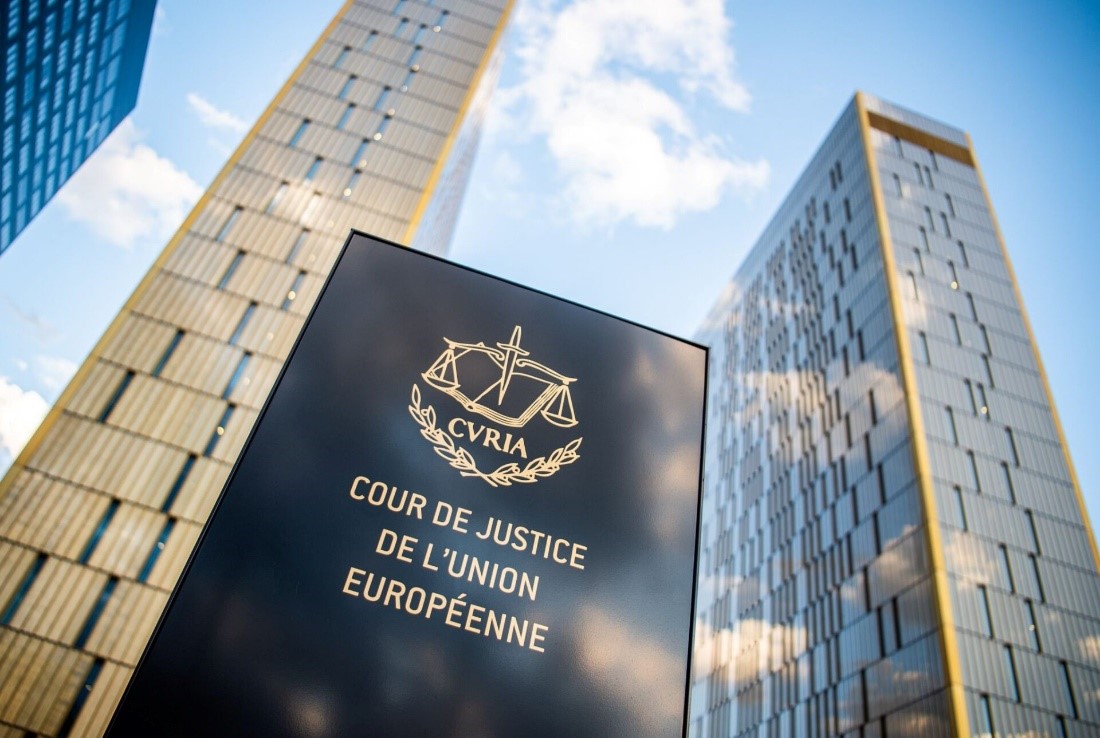25 February 2025, the CJEU, in Case C-339/22, BSH Hausgeräte GmbH v Electrolux AB, addressed important matters regarding jurisdiction in European patent litigation, particularly when the validity of a patent is challenged as a defense in an infringement action. The decision clarifies the interpretation of Article 24(4) of Regulation (EU) No 1215/2012 (the Brussels I bis Regulation, “the Regulation” ) and its implications for courts within EU Member States, the UPC Contracting States and third states.
1. Jurisdiction over Infringement vs. Validity: The CJEU reaffirmed the distinction between actions for patent infringement and those concerning the validity of a patent. The CJEU confirms that Article 24(4) of the Regulation grants exclusive jurisdiction to the courts of the Member State where the patent is registered or validated for proceedings concerning the validity of that patent. However, this exclusive jurisdiction does not extend to an infringement action when validity is raised as a defense in response to the infringement action. Hence, a court of a Member State seized of an infringement action will maintain its jurisdiction even if the defendant, as a defense, raises a challenge to the validity of the patent. According to Article 24(4), the validity challenge will be finally determined by the Member State Court where the patent is registered or validated. However, Art 24(4) does not extend to an inter partes validity defense raised in the infringement action and may accordingly be taken into account by the Member State Court in charge of the infringement action when determining on the infringement. This is further discussed by the Advocate General in his opinion of 22 February 2024 (“the AG Opinion”).
2. Infringement Action with Validity as a Defense: The core issue of the case was whether a court in a Member State, hearing a patent infringement action under Article 4(1) of the Regulation (general jurisdiction based on the defendant’s domicile), would lose its jurisdiction for the infringement action if the defendant raises a challenge to the validity of the patent as a defense. As the issue of validity of the patent is very frequently raised as a defense in patent infringement actions, this would limit the application of this general rule of jurisdiction in many infringement cases. Currently, the Member States apply diverging interpretations of Article 24(4) in such a situation, as exemplified in the AG Opinion. In reply, the CJEU ruled that the court does not lose jurisdiction over the infringement action in such cases. If the opposite would have been true, a defendant could by raising a plea of invalidity in respect of a patent granted in a Member State other than that of its domicile, bring an end to infringement proceedings that had been properly brought before the Member State where the defendant is domiciled. Instead, as ruled by the CJEU, the court will retain its power to hear the infringement claim, but it cannot rule on the validity of the patent itself, as clearly set out in Article 24(4). The challenge to validity is a matter for the courts of the Member State where the patent was granted or validated.
3. National Procedural Rules: The CJEU clarified that national procedural rules requiring a separate action for a declaration of invalidity do not affect the interpretation of Article 24(4). The concept of “proceedings concerned with the validity of patents” is an autonomous concept of EU law and must be interpreted uniformly across Member States, irrespective of national rules.
4. Third-State Patents: The CJEU addressed the applicability of Article 24(4) to patents validated in third states (e.g., Turkey in the case at hand, a non-EU, EPC country). The CJEU held that, clearly, Article 24(4) does not apply to courts of third states. Therefore, it does not confer exclusive jurisdiction on a court in a third state regarding the validity of a patent validated there.
5. Limits on Jurisdiction Regarding Third-State Patents: While in view of Article 4(1), a seized Member State court can, in principle (unless there are restrictions in international law), hear an infringement action involving a third-state patent and consider a validity defense relating to that patent, its decision cannot affect the existence or content of the patent in the third state. The decision has inter partes effect only (i.e., it is binding only on the parties to the proceedings) and cannot affect the existence or content of that patent or cause the national register of the third state to be amended.
6. Avoiding Conflicting Decisions: The CJEU acknowledged the risk of conflicting decisions if different courts rule on infringement and validity. It suggested that the court hearing the infringement action may stay the proceedings if an action for a declaration of invalidity is pending before the courts of the Member State where the patent was granted. This allows the infringement court to take account of the validity decision when ruling on the infringement claim. This matter, and different situations that may arise, is further discussed in the AG opinion. In general, the infringement proceeding should be stayed until the validity of the patent has been determined by the authorities of the State of registration before they issue a final decision on infringement. However, a stay should only be granted if it is proportionate and fair to do so, and the resulting delays are “warranted.” The courts hearing the infringement proceedings should assess the seriousness of the invalidity challenge and only consider granting a stay where the challenge has a genuine prospect of success. Preferably, to avoid dilatory tactics by the alleged infringer, the courts determining the infringement case should set a deadline for the alleged infringer to bring invalidity proceedings in the State of registration. At all events, for a defendant, the bifurcation of the infringement proceedings and the validity proceedings may require that multiple invalidity attacks must be brought in parallel before multiple national courts, even if a patent owner only brings one infringement action before one national court to stop infringement in all countries where infringement is alleged.
Potential Impact on Jurisdiction in Future European Patent Litigation
The CJEU’s decision in BSH v. Electrolux provides much-needed clarity on jurisdictional issues in European patent litigation and has several key impacts:
1. Clarification of Article 24(4): The decision definitively clarifies the scope of Article 24(4) of the Regulation. It confirms that the provision is limited to proceedings directly concerned with the registration or validity of patents and does not extend to infringement actions, even when validity is raised as a defense. This clarification helps prevent misinterpretations that could undermine the general jurisdiction rule of Article 4(1) of the Regulation.
2. Forum Shopping: The decision may reduce forum shopping by patentees. Previously, patentees might have had an incentive to bring infringement actions in jurisdictions perceived as more favorable to patentees, even if the defendant was not domiciled there. Now, the confirmation that the defendant’s domicile court retains jurisdiction over infringement, even with a validity defense, may make patentees more strategic in their choice of forum. A patentee may now sue any EU-based defendant in the national courts of its domicile for patent infringement in any country (worldwide), including filing a request for an injunction and/or damages. Of course, the infringement must always be determined based on the applicable law in each case. Therefore, for example, the European courts may need to assess and apply foreign laws (e.g. US laws).
3. UPC: The owner of European patent (non-opted out) may now attack an alleged infringer who is domiciled in a UPC member state at the UPC also in relation to EPC states that are not part of the UPC system.
4. Domicile: One question that remains to be answered is the precise scope of the concept “domicile”, for example in relation to joint defendants. If only one defendant has a place of business in the relevant EU Member-State, is this sufficient to bring all defendants before a court of this state?
In conclusion, the CJEU’s decision in BSH v. Electrolux is a significant development in European patent law. The decision provides clarification of the jurisdictional rules under the Brussels I bis Regulation and promotes the centralization of infringement actions. However, a few issues remains to be resolved, for example with respect to the domicile of the defendant.
Text: Joakim Wihlsson and Camilla Mörch
Source: C-339/22

